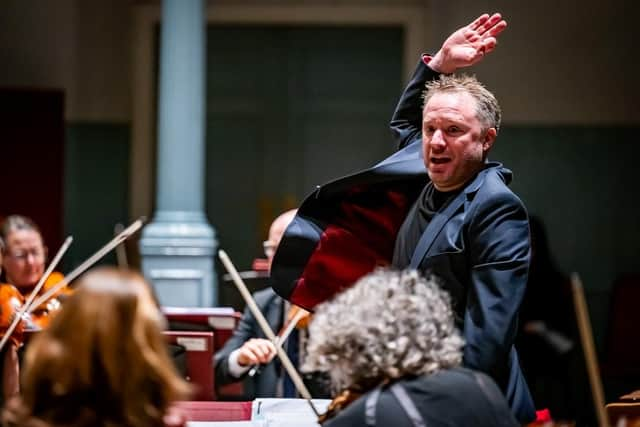Music review: SCO & Colin Currie, Queen’s Hall, Edinburgh
SCO & Colin Currie, Queen’s Hall, Edinburgh *****
If you play it, they will come. That was surely the takeaway from the packed and enthusiastic (and noticeably age-mixed) audience at the Queen’s Hall for the Scottish Chamber Orchestra’s concert orbiting around the works of Steve Reich. The music – a winning mix of late and post-minimalism – was clearly a big draw, but so was local boy Colin Currie, percussion superstar and a close musical collaborator with Reich.
Currie took on an astonishing range of roles, from informed and articulate compère to fluent, perceptive conductor, as well as ensemble player and even concerto soloist. Indeed, it was a remarkable achievement from Currie to both play and direct Louis Andriessen’s percussion concerto Tapdance, and Currie’s switching between roles laid bare the piece’s mechanics to revelatory effect. The piece also gave the SCO’s augmented brass and wind sections a superb opportunity to let rip in big band swagger – it’s a mark of the orchestra’s nimble versatility that the players were so adept at flicking between that and more traditional Andriessen-style driving dissonance.


Advertisement
Hide AdAdvertisement
Hide AdIronically, the two pieces by Reich himself that Currie had chosen felt surprisingly soft-edged and pastel-hued, certainly the charming Pulse, though Currie delivered a crisp, buoyant performance. He was more assertive Reich’s ambitious Radiohead tribute Radio Rewrite, driven through by agile playing from Simon Smith and Michael Bawtree on pianos and Tom Hunter and Colin Hyson on vibraphones. The evening’s highlight, however, was also the concert’s wild card: Julia Wolfe’s Fuel is 20 minutes of frantic, furious string tremolos and scratchings that tested the pinpoint accuracy and sheer stamina of the SCO’s strings. But it was a triumph – a non-stop barrage of noise and sound, full of blazing energy yet alienating, too, in its demands on players and listeners. A standing ovation for the concert’s least known, most challenging music? Currie and the SCO must have been doing something right.